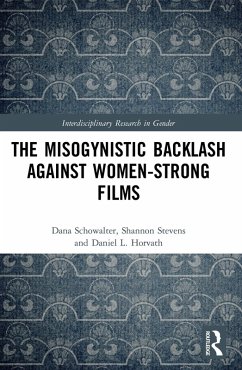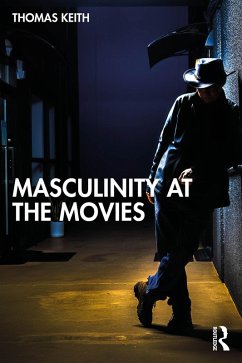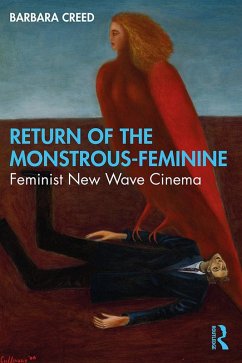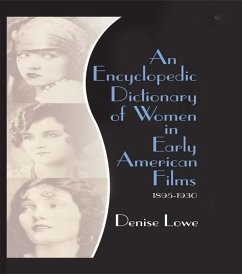
The Misogynistic Backlash Against Women-Strong Films (eBook, ePUB)
Versandkostenfrei!
Sofort per Download lieferbar
39,95 €
inkl. MwSt.
Weitere Ausgaben:

PAYBACK Punkte
20 °P sammeln!
This book is an exploration of the political struggle for visibility engendered by the growing number of women-centered popular films and a critical analysis of the intensifying misogynistic backlash that have accompanied such advances in the depiction of women on screen.The book draws from a variety of theoretical and methodological tools to provide critical cultural analysis and alternative readings of women-strong films and their important role in society. The authors engage with popular culture and the popular press, media studies, and rhetorical criticism examining new modes of communicat...
This book is an exploration of the political struggle for visibility engendered by the growing number of women-centered popular films and a critical analysis of the intensifying misogynistic backlash that have accompanied such advances in the depiction of women on screen.
The book draws from a variety of theoretical and methodological tools to provide critical cultural analysis and alternative readings of women-strong films and their important role in society. The authors engage with popular culture and the popular press, media studies, and rhetorical criticism examining new modes of communication while providing historical context to help make sense of these oppositional readings. The book includes case studies on Mad Max: Fury Road, Wonder Woman, Atomic Blonde, Star Wars, and Ghostbusters to analyze critical responses, men's-rights activist boycotting campaigns, online harassment, and the political economy that precede and accompany the creation and presentation of these films.
This is an accessible and timely analysis of the rise of feminist-friendly and women-led films and the inevitable counterculture of misogyny. It is suitable for students and researchers in Media and Communication Studies, Gender and Media, and Cultural Studies.
The book draws from a variety of theoretical and methodological tools to provide critical cultural analysis and alternative readings of women-strong films and their important role in society. The authors engage with popular culture and the popular press, media studies, and rhetorical criticism examining new modes of communication while providing historical context to help make sense of these oppositional readings. The book includes case studies on Mad Max: Fury Road, Wonder Woman, Atomic Blonde, Star Wars, and Ghostbusters to analyze critical responses, men's-rights activist boycotting campaigns, online harassment, and the political economy that precede and accompany the creation and presentation of these films.
This is an accessible and timely analysis of the rise of feminist-friendly and women-led films and the inevitable counterculture of misogyny. It is suitable for students and researchers in Media and Communication Studies, Gender and Media, and Cultural Studies.
Dieser Download kann aus rechtlichen Gründen nur mit Rechnungsadresse in A, B, BG, CY, CZ, D, DK, EW, E, FIN, F, GR, HR, H, IRL, I, LT, L, LR, M, NL, PL, P, R, S, SLO, SK ausgeliefert werden.













